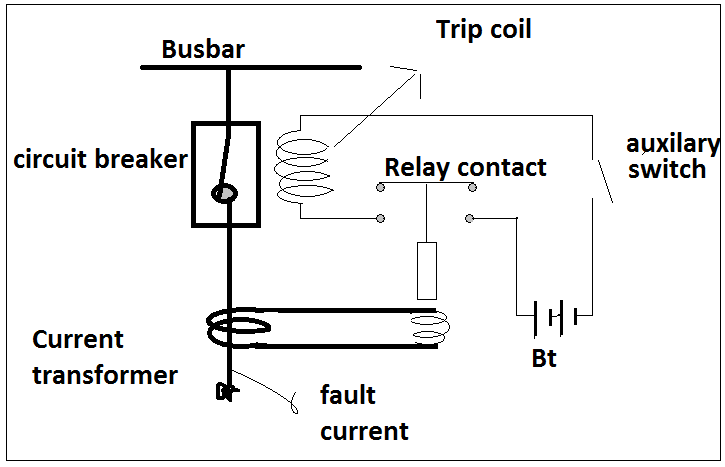Circuit Breaker Safety: A Core Advantage
Imagine a sudden surge of electricity coursing through your home's wiring. A faulty appliance, a lightning strike, or even just an overloaded circuit could create a dangerous situation. Now, consider the peace of mind that comes with knowing a small device is standing guard, ready to interrupt that flow of energy before disaster strikes. That's the core advantage of a circuit breaker: fire prevention.
Circuit breakers are designed to protect your home from electrical fires. They act as a safety net, automatically cutting off power when a circuit becomes overloaded. This simple action prevents overheating, which is a primary cause of electrical fires. Without this safeguard, the excessive current could melt wires, ignite surrounding materials, and quickly escalate into a devastating fire.
The ability to prevent electrical fires is perhaps the most compelling reason for the existence of circuit breakers. While other benefits exist, such as protecting appliances from damage, the fire prevention aspect is paramount. It's about safeguarding lives and property, a silent guardian against a potentially catastrophic event.
Before circuit breakers, fuses served a similar purpose, but with a key limitation. Fuses could only be used once. After blowing, they needed to be replaced. This could be inconvenient, especially during a power outage at night. Circuit breakers, however, can be simply reset after tripping, offering a more practical and convenient solution.
Understanding the key advantage of a circuit breaker—preventing electrical fires—empowers you to appreciate the importance of this often-overlooked safety feature in your home. It's not just about keeping the lights on; it's about ensuring the safety and well-being of those who live there.
The invention of the circuit breaker marked a significant advancement in electrical safety. Early forms of overcurrent protection were rudimentary, often relying on simple melting wires. The modern circuit breaker, with its ability to be reset, offers a far more sophisticated and effective approach to managing electrical faults and preventing fires.
A circuit breaker is an automatically operated electrical switch designed to protect an electrical circuit from damage caused by overload or short circuit. Its basic function is to interrupt current flow after a fault is detected. When the current exceeds a safe level, the circuit breaker trips, breaking the circuit and stopping the flow of electricity.
Benefits of a circuit breaker's fire prevention capability extend beyond the immediate prevention of fires. It reduces the risk of property damage, minimizes the chance of injury or loss of life from electrical fires, and offers peace of mind knowing that a safety net is in place.
Ensure your circuit breakers are properly rated for their intended use. Don't overload circuits by plugging in too many appliances. Regularly test your circuit breakers to ensure they are functioning correctly. If you experience frequent tripping, consult a qualified electrician.
Advantages and Disadvantages of Focusing on Fire Prevention as the Key Advantage
| Advantages | Disadvantages |
|---|---|
| Clearly highlights the most critical benefit | May overshadow other benefits like appliance protection |
| Emphasizes the life-saving potential | Can make the topic seem overly serious |
Best Practices:
1. Regularly inspect your electrical panel for signs of wear or damage.
2. Avoid overloading circuits by using power strips sparingly.
3. Never ignore a tripped circuit breaker; investigate the cause.
4. Label your circuit breakers to quickly identify which areas they serve.
5. Consult a qualified electrician for any electrical work beyond basic maintenance.
Frequently Asked Questions:
1. What causes a circuit breaker to trip? Overloads or short circuits.
2. How do I reset a tripped circuit breaker? Flip the switch to the fully off position, then back on.
3. Can I replace a circuit breaker myself? It's best to consult a qualified electrician.
4. Why does my circuit breaker keep tripping? It could be an overloaded circuit, a faulty appliance, or a wiring problem.
5. Are there different types of circuit breakers? Yes, including AFCI and GFCI breakers for added protection.
6. How often should I test my circuit breakers? At least once a year.
7. What should I do if I smell burning near an outlet? Immediately turn off the power at the breaker box and call an electrician.
8. How can I prevent circuit breaker trips? Avoid overloading circuits and use appliances within their rated wattage.
Tips and Tricks: Keeping a flashlight near your electrical panel can be helpful during a power outage. Knowing the location of your main breaker switch is crucial in emergencies.
In conclusion, the primary advantage of a circuit breaker—preventing electrical fires—cannot be overstated. This simple device plays a crucial role in safeguarding our homes and families. While other benefits exist, such as appliance protection and convenience, the fire prevention aspect makes circuit breakers an essential safety feature in every home. By understanding their function and taking proactive steps to ensure they are working correctly, we can significantly reduce the risk of electrical fires and create a safer living environment. Regularly checking your circuit breakers, avoiding overloading circuits, and addressing any electrical issues promptly are vital steps in maintaining a safe and secure home. Taking these precautions can protect your family, your property, and provide invaluable peace of mind. Remember, a functioning circuit breaker is more than just a switch; it's a silent guardian protecting against potential disaster.
Arkansas ebt online application guide
Unlocking the latest i am mom manga chapter
Understanding federal salaries in raleigh gs pay scale insights












:max_bytes(150000):strip_icc()/safely-install-a-circuit-breaker-1152745-08-6f6a59afc5a24dd189ef645617d1ee54.jpg)
